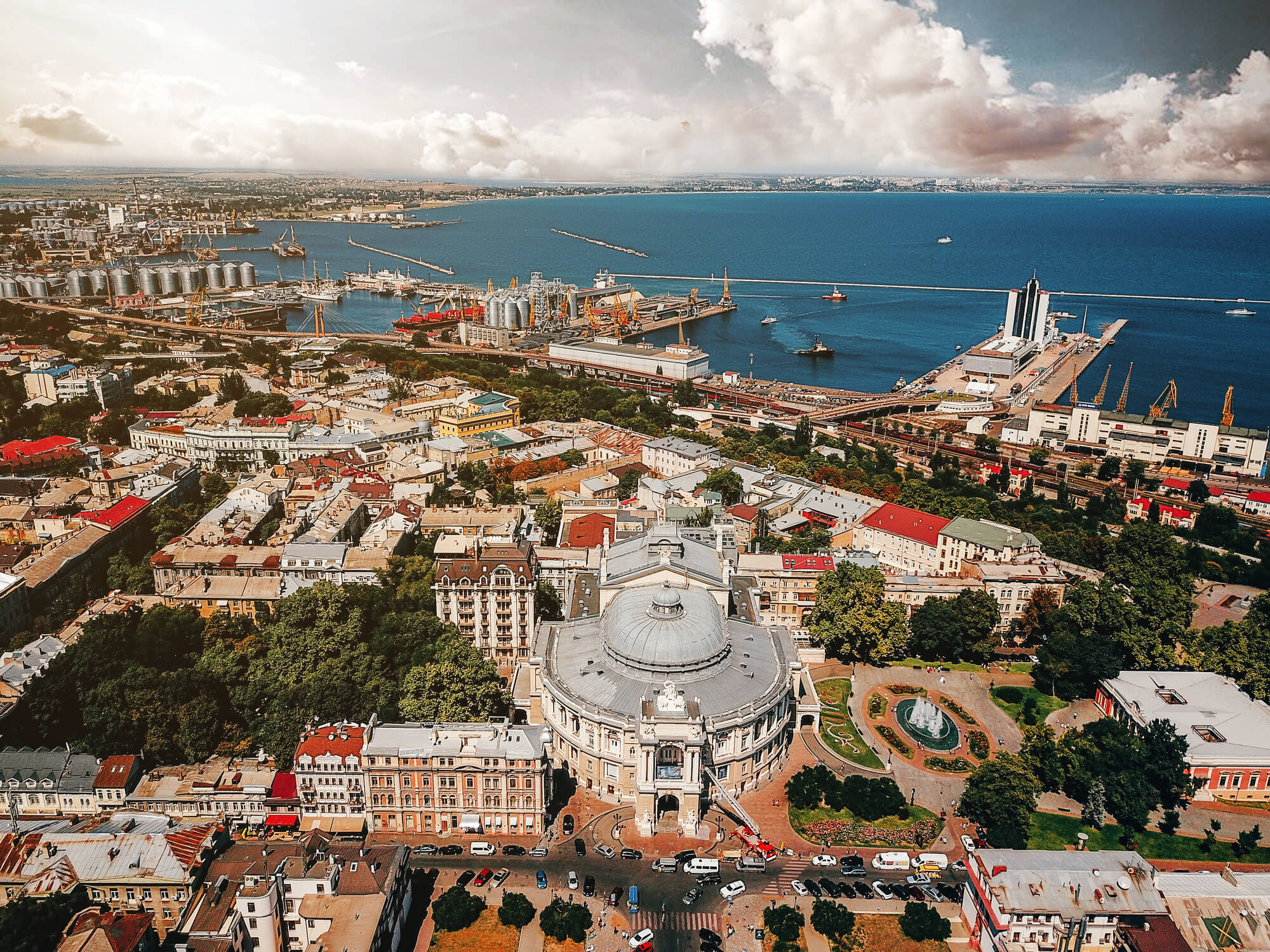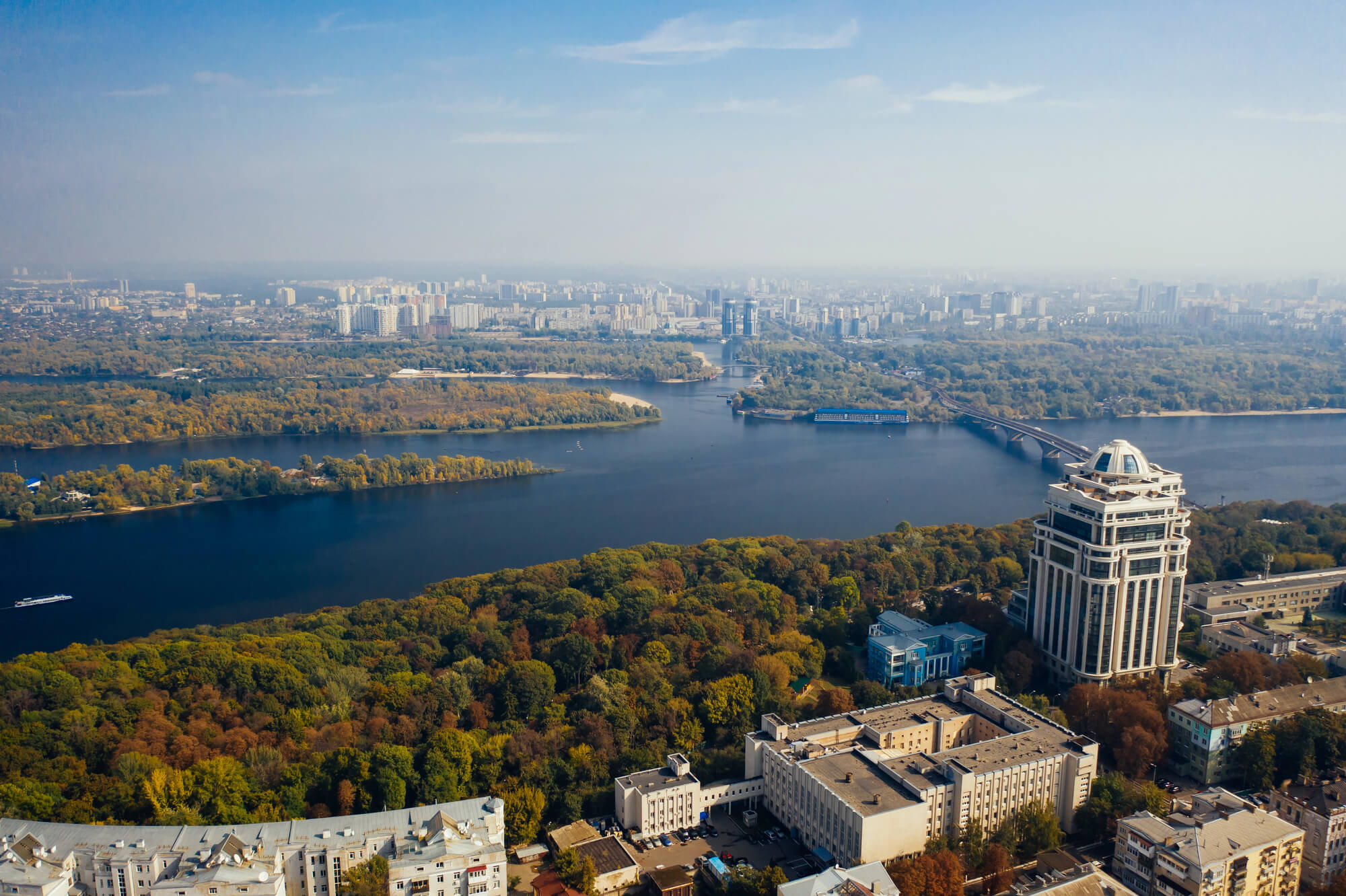The guest of this “Reconstruction” podcast episode is Vitalii Bezgin, a people’s deputy of Ukraine, chairman of the Subcommittee on Administrative and Territorial Structure and Local Self-Government of the Verkhovna Rada Committee on Organization of State Power, Local Self-Government, Regional Development and Urban Planning. We talked with him about the financial state of communities, the personnel crisis, the achievements of the reform over ten years, and governance in liberated and frontline territories.
On the achievements of the reform over ten years
I am convinced decentralization reform has been the most systematic and comprehensive initiative since the Revolution of Dignity. It has produced several major milestones.
The first is the administrative-territorial reform, which is part of the decentralization process: a new map of Ukraine emerged in the summer of 2020.
The second is fiscal decentralization, involving the transfer of resources to local levels. It’s about empowering local authorities to manage funds, develop governance skills, and take responsibility for the territories where they were elected.
I believe the impact of these changes fully manifested after February 2022, when we contrasted our horizontal system with the vertical autocratic governance system in place in Russia. Thanks to this flexibility, we were much more effective in countering full-scale aggression.
This demonstrates the success of the reform: we have managed to maintain state governance in communities even during the largest military conflict on the continent since World War II.
The key points of the podcast were compiled by Maksym Yovenko, a Reform Index project assistant
On districts, communities, and the Constitution
Districts exist and will continue to exist as administrative-territorial units. However, we cannot eliminate district councils during martial law because they are enshrined in the Constitution. This has led to a situation where these councils are (un)effectively without resources or authority, like a fifth wheel.
The Constitution does not contain the term “communities.” Nevertheless, they are fully legitimate, and this does not prevent the election of mayors and heads of local councils. While we use the term “territorial community” for constitutional purposes, we still elect village, settlement, and city councils and, accordingly, village, settlement, and city mayors. However, this is purely a legal issue. It’s important to keep it in mind, which is why the concept of communities will need to be introduced into the Constitution (while district councils should be abolished as remnants of the old governance system – ed.).
What needs to be fixed after the war?
The first issue that will arise is the city of Sevastopol’s special status. We understand that while Kyiv received special status in the Constitution as the capital, Sevastopol had it exclusively because the Black Sea Fleet of the aggressor state was stationed there.
The second issue is finally renaming the Dnipropetrovsk and Kirovohrad regions. This is currently impossible because the regions’ names are in the Constitution. Alternatively, we could remove the regions’ names from the Constitution altogether. The vast majority of countries do not list their administrative-territorial units in their constitutions.
In addition, prefects must be introduced into the Constitution to transition from the Soviet-era “heads of administrations” to a European model. It’s important to note that Ukraine is currently the only country on the European continent that lacks any oversight of the legality of local self-government decisions, which creates an imbalance in the system.
Before 2014, we had this “general oversight” by the prosecutor’s office, where a prosecutor would, for example, attend local council sessions. It was right to remove this, as the prosecutorial hierarchy should not be involved in local self-government or exert pressure on it. However, we did not implement anything in its place. It’s like having a bad barn, dismantling it, but not building a new house. Now, you’re wandering the streets with your bags in hand, trying to figure out where to sit down.
Therefore, regional and district state administrations should undoubtedly be transformed into prefectures. Even if they retain the name “administrations,” that’s not crucial. The main thing is that these bodies should have the authority to oversee and challenge the decisions made by communities or regional councils that they consider illegal or unconstitutional in court.
The only exception is that if a decision threatens Ukraine’s territorial integrity, it should be automatically annulled (without a court decision) and reported to the Security Service of Ukraine. Russia isn’t going anywhere, and some sort of unfriendly state entity will remain our neighbor. That’s why we need safeguards against its influence.
Finally, the starostas, as the link between residents of remote villages and the heads of communities, will continue to operate as they do now, based on current legislation.
On the financial condition of communities during wartime
Let’s look at the Ministry of Finance’s figures from just two weeks ago (the conversation took place in July – ed.): local budget revenues have exceeded projections by about 40 billion hryvnias. This means communities (except for de-occupied, frontline, and border areas with Russia) are facing far fewer financial problems than the state budget, which has a huge deficit and is heavily dependent on international aid.
Was last year’s decision to transfer the military PIT to the central level really the right one? I don’t have a definitive stance on this. On the one hand, we lost local-level procurement, such as pickups or drones. Also, from a fairness perspective, communities are not responsible for the increased need for military spending and PIT from soldiers’ salaries. The blame for this lies with Russia.
At the same time, did the state have the right to make such a decision? Absolutely. Sometimes, an official in Kyiv City Council might say that the war and military budget are the state’s problem. But Kyiv enjoys more peace because it’s not as calm in areas like Kharkiv, Donetsk, or Kherson. It seems to me that the state is sometimes too democratic, given the current situation. Therefore, I don’t see critical harm to local budgets, as the primary concern is the state’s defense during the war.
On the capacity of local authorities
The assessment of local authority capacity depends on what we mean by that term. If we are talking about quality services and creating an environment where people feel comfortable, it all comes down to local municipal management. Often, it’s not even a matter of budget.
We’re sitting in the largest city in the country, the financial, political, and economic center. Businesses are growing, taxpayers are registered, and as a result, Kyiv’s budget increases year after year. Does this lead to a more comfortable environment and higher-quality services? Not really. There are much smaller communities where they achieve better results thanks to effective management. So, it’s all relative.
Another point is representative democracy and decentralization. These are two pieces of the same puzzle that depend on citizen awareness. It is the citizen who elects the government and delegates authority. The comfort of our environment depends on how effective those elected are at the local level. So, if we want to live in a different kind of country, we need to approach this choice more consciously.
It’s important to remember that this choice is not the state’s responsibility. The state cannot remove a “bad” mayor. You elected them, so you live with them. In the next election, make a different choice. The state should not interfere in these processes because it would break the very logic of local self-government. And we want to be a European country.
However, the state should promote best practices. Naturally, a community may not want to share its experience with its neighbor because communities operate in an ocean of competition. They compete for investors, taxpayers, development, and people, the latter of which is especially important in the context of a demographic crisis.
On communities on the path to the EU
This year, without being an EU member, Ukraine only gained access to select European Union programs, such as cross-border cooperation. However, the funding for these programs is incomparable to what EU member states receive.
For instance, under the Ukraine Facility program (which spans four years – ed.), Ukraine is set to receive EUR 50 billion (an amount we would never have seen if not for the full-scale war). In contrast, Poland, which isn’t at war and doesn’t need to allocate funds for budget deficits, armed forces, or reconstruction, receives around EUR 80 billion. Of course, the Poles also have obligations and accountability tied to this, as is the case with European bureaucracy. But still, the funds they get are far greater than what we receive.
And it’s not just about the amount of funding. Poland has learned how to use these funds effectively. We, on the other hand, are currently unable to manage such a volume of finances. We lack the experience and have never injected this much money into the economy before. This is a challenge tied to personnel at the national, regional, and local levels. The issue with staffing existed before, but the war has exacerbated it.
Picture a department head in a regional administration receiving a salary of just UAH 17,000. Meanwhile, many grant projects for material and technical assistance come in, where one can work as a specialist for EUR 1,500 without the same level of responsibility, strict schedule, or law enforcement oversight. What choice would you make?
This is a problem. The state is not a competitive employer, and society harbors resentment toward officials. To the public, an official is often perceived as a corrupt bureaucrat or a criminal. This generalized image is based on individual cases (which, while they do exist, are not universal) and undermines respect for public servants. Without respect for officials, there will be no functioning state institutions.
On human capital in frontline communities
There is severe depopulation in the border areas with Russia. The primary model of existence for such communities currently revolves around military units, the personnel supporting these units, related industries, and military PIT as the main source of budget revenue.
There is no other way to manage these territories during this transitional period because it all depends on business. However, businesses are relocating from areas like Kharkiv to Lviv or Volyn, which is closer to the Polish border. Without business, there will be no jobs. Ultimately, two things matter: having a place to live and work. If there are no jobs, people won’t want to stay in these communities.
On decentralization and occupied territories
The model of administrative-territorial organization for Crimea and the Donetsk and Luhansk regions will depend on how de-occupation occurs: through political-diplomatic means or military action.
Undoubtedly, in the territories occupied since 2014, local self-government will not be immediately restored. During the transitional period, these areas will be governed by military or military-civilian administrations, depending on which territories remain under martial law.
We don’t fully understand the scale of the challenges we will face. For instance, in Crimea, there are half a million people relocated from Russia. Europeans won’t allow us to conduct deportations. Some will leave, some won’t—these are also challenges we will face.
Will these territories lag in development? Yes, partly because the Russians imposed a different governance system. For example, there were no elections, as mayors in Russia are appointed, not elected. The same applies to decision-making processes. In the occupied territories of Kherson, the first thing the Russians did was dismantle all territorial communities and restore the Soviet-style administrative-territorial structure. Therefore, these territories will need to catch up in many ways, and this must become part of state policy.
Do we currently have a clearly formulated state policy on how to govern these territories? No, because there is no clear understanding of how to deal with collaborators and what challenges will arise for the population and infrastructure. The transitional period will also require personnel willing to go there and work.
In this sense, the idea of “engaging young men and women from the government-controlled territories, and everything will be great” sounds quite romantic. But the security factor comes into play: are they ready to leave their families and go to a place where they might be shot? I don’t want to scare anyone, but such risks exist in areas that have been occupied for ten years, where people’s minds have been saturated with Russian propaganda and hatred toward us. These are challenges that need to be discussed maturely and soberly.
Photo: depositphotos.com
Attention
The authors do not work for, consult to, own shares in or receive funding from any company or organization that would benefit from this article, and have no relevant affiliations




